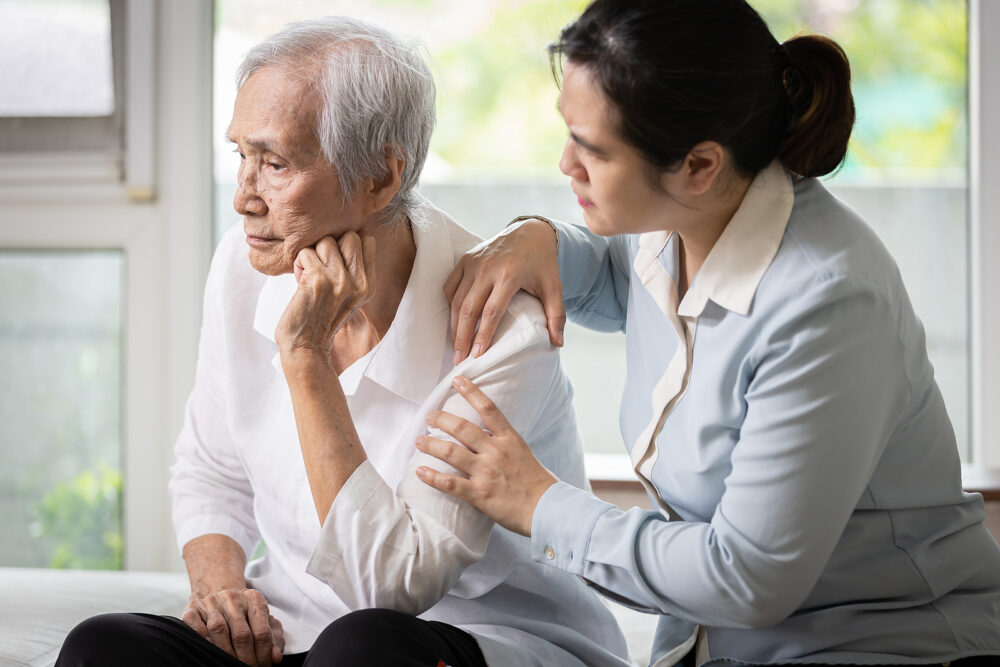September 30, 2022

A quarter of U.S. adults report helping an older adult with a long-term disability or illness at some point in the past year. Of those adults, 53% report not properly taking care of themselves while helping someone else. One of the biggest risks family caregivers face is caregiver fatigue. What is it and how do you recognize it?
Caregiver Fatigue Explained
Caregiver fatigue is a state of mental, emotional, and physical exhaustion experienced by caregivers, often unpaid family caregivers. It usually occurs when a family caregiver isn’t getting enough support, or any support, from professionals or other close friends or family members.
Often caregiver fatigue is triggered because self-care is lacking. It’s hard to go from being someone’s son or daughter to being in a parental role where you’re directing a parent to get showered and dressed, brush/floss their teeth, eat a meal or snack, or take medications.
It’s also emotionally and mentally draining to watch a parent decline, especially with diseases like Alzheimer’s, cancer, Parkinson’s, or a stroke. In addition to the physical help you must provide, you often have to be upbeat and cheerful for your parent’s benefit at a time when you just want to break down and cry.
What Are the Symptoms?
How do you know when you’re dealing with caregiver fatigue? One of the key signs is that you start to withdraw from friends and family. You don’t want to socialize. You withdraw from things you enjoyed doing. For example, you used to host regular dinners at your home, but you can’t stomach the thought anymore. You just want to eat dinner, watch TV, and go to bed early.
You don’t want to be on the phone with friends catching up. The sound of the phone ringing makes you anxious. You feel blue all the time, or you become easily irritated for no reason.
People with caregiver fatigue may think about disappearing, harming themselves, or even wishing the person they were caring for would die. The more they find their thoughts drifting to self-harm or the death of their ailing parent, the guiltier they feel.
Depression, anxiety, and self-loathing are common with caregiver burnout. Likewise, withdrawal, moodiness and constant sadness are also normal with burnout.
Seek Support ASAP
So, if you start to think you’re experiencing caregiver burnout while caring for your mom, stop and get help. Find someone to vent to, whether it’s a therapist, support group, family member, or friend. Make sure you’re emotionally and mentally supported.
Get active. See your doctor for a wellness check, if you haven’t had one lately. As long as you don’t have any underlying health issues, start exercising. Walking, strength training and Yoga are good programs to start with.
Don’t let caregiver fatigue take you by surprise. Make sure you’re proactive about taking care of yourself, while also taking care of your mom. Arrange home care assistance to ensure you have time for self-care. A home care assistance advisor can help you get started.
Sources: